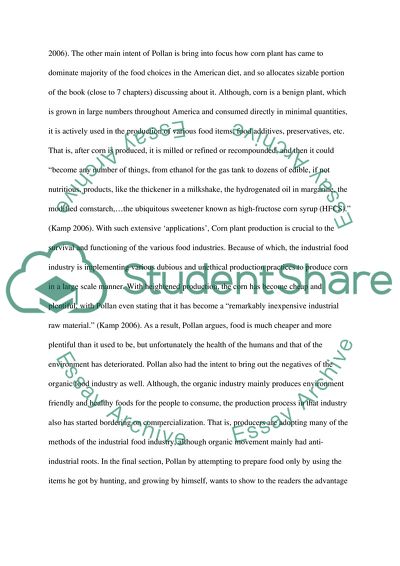Cite this document
(“Omnivore's Dilemma: A Natural History of Four Meals Essay”, n.d.)
Omnivore's Dilemma: A Natural History of Four Meals Essay. Retrieved from https://studentshare.org/english/1583105-response-to-the-omnivores-dilemma
Omnivore's Dilemma: A Natural History of Four Meals Essay. Retrieved from https://studentshare.org/english/1583105-response-to-the-omnivores-dilemma
(Omnivore'S Dilemma: A Natural History of Four Meals Essay)
Omnivore'S Dilemma: A Natural History of Four Meals Essay. https://studentshare.org/english/1583105-response-to-the-omnivores-dilemma.
Omnivore'S Dilemma: A Natural History of Four Meals Essay. https://studentshare.org/english/1583105-response-to-the-omnivores-dilemma.
“Omnivore'S Dilemma: A Natural History of Four Meals Essay”, n.d. https://studentshare.org/english/1583105-response-to-the-omnivores-dilemma.


